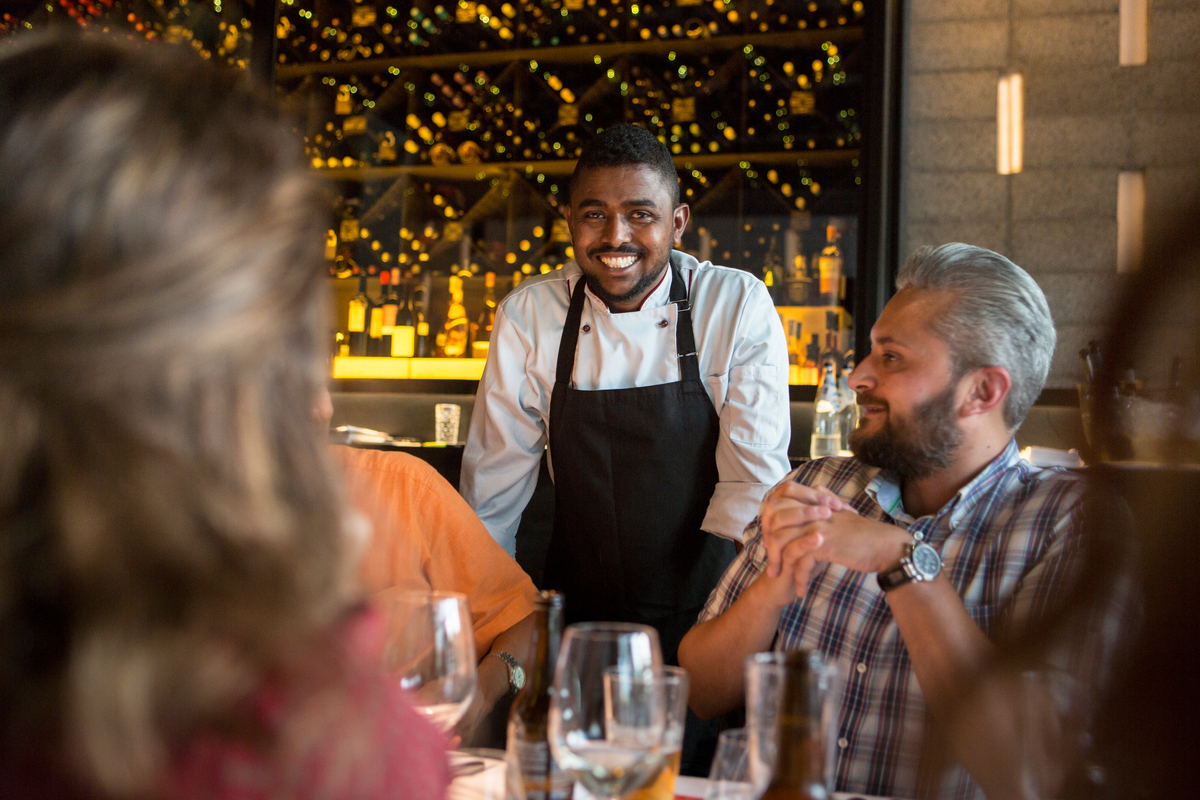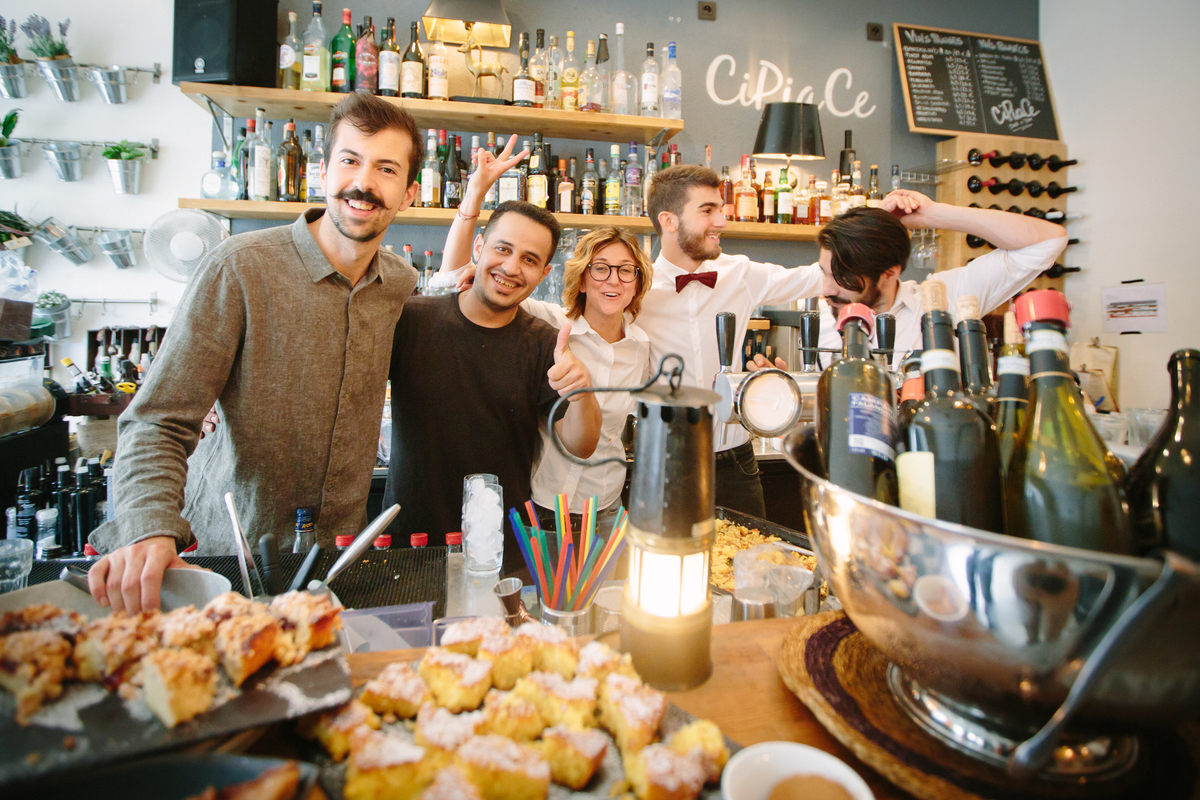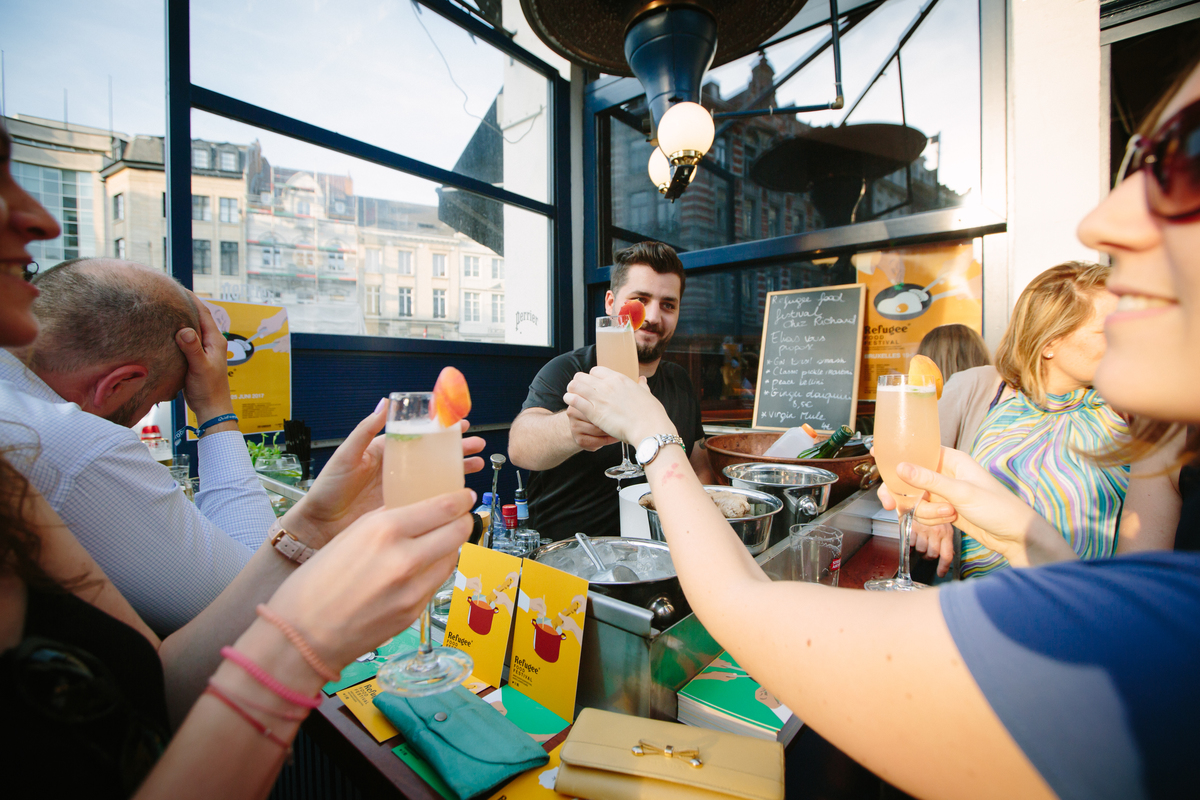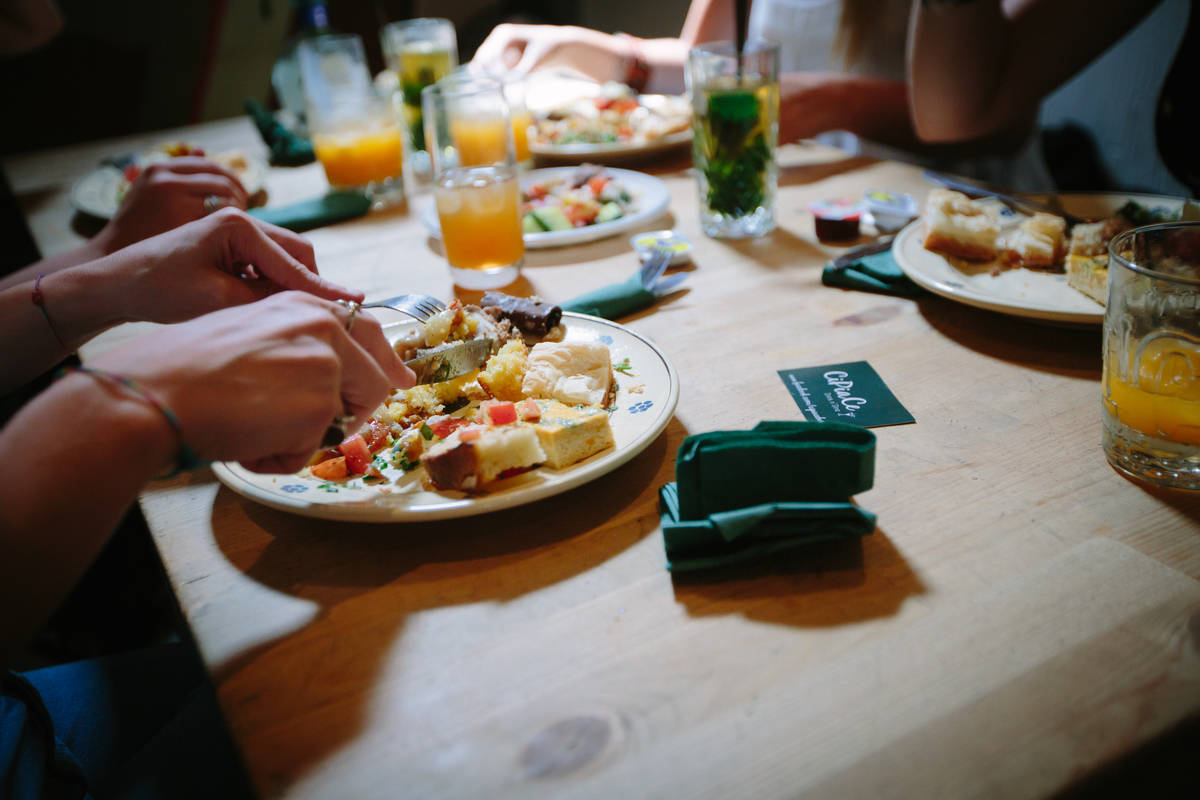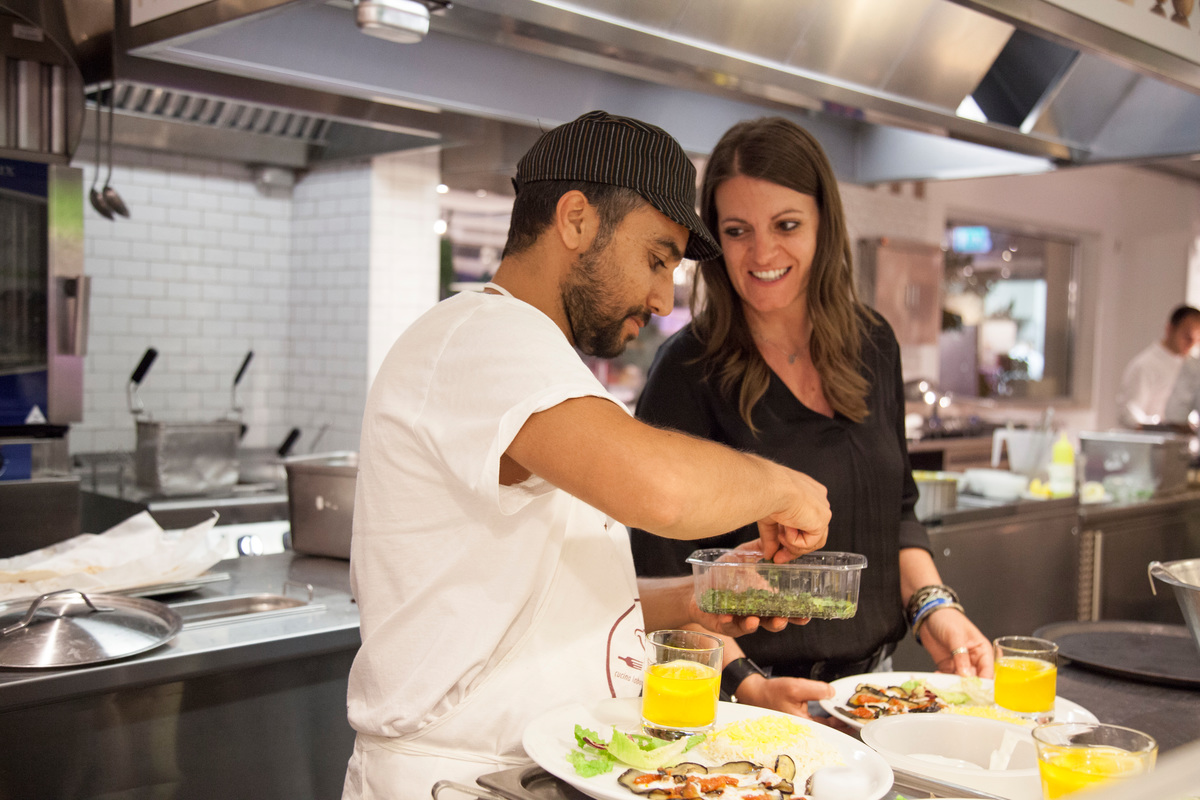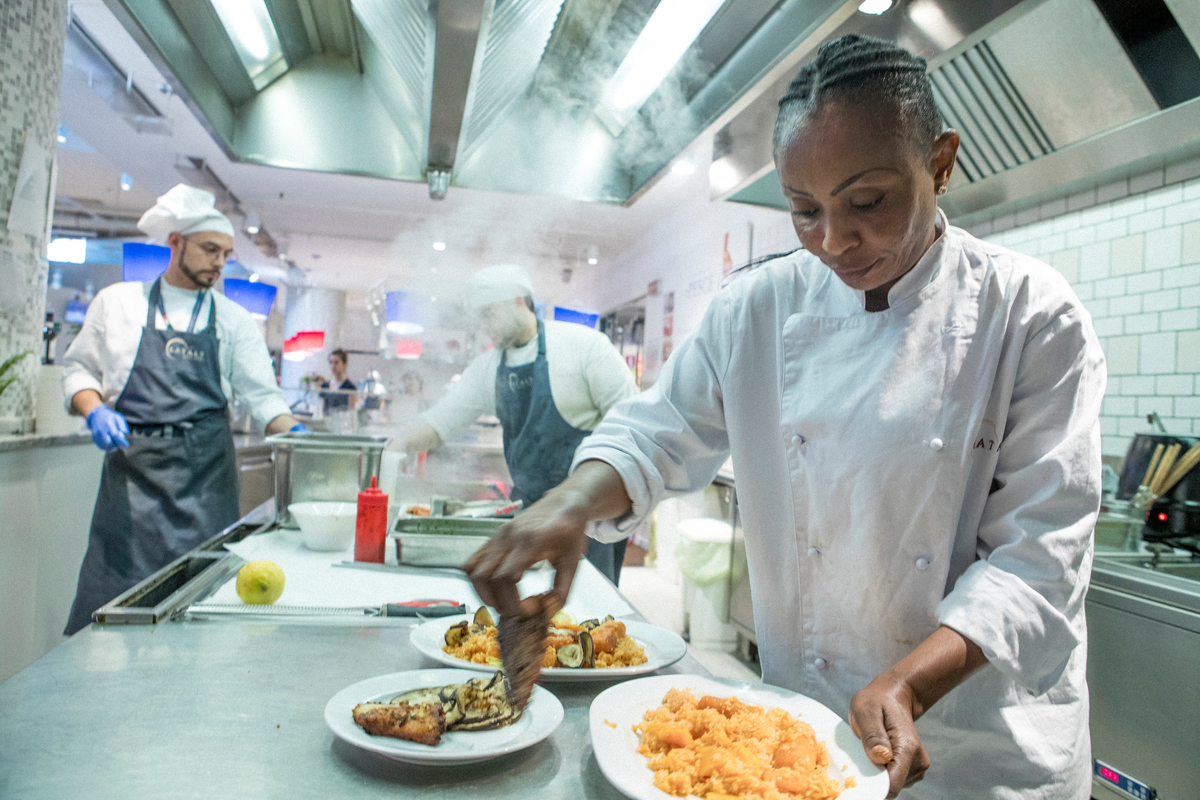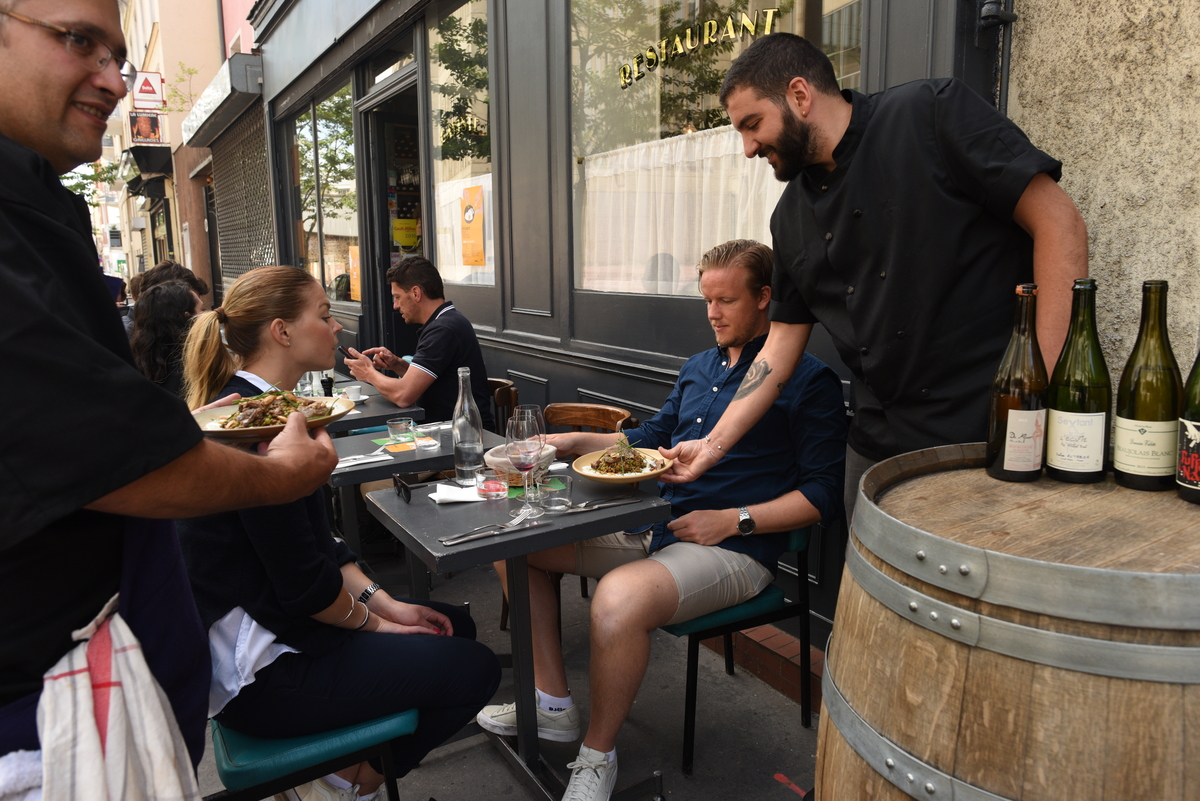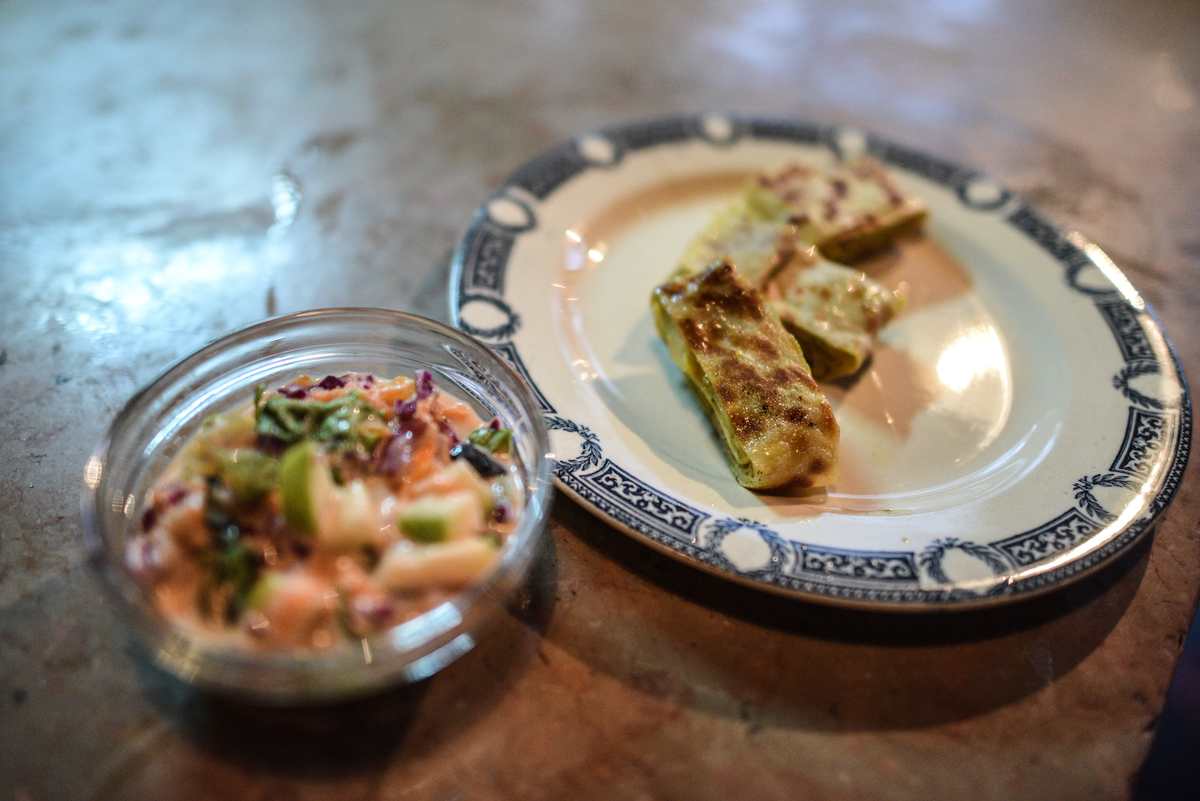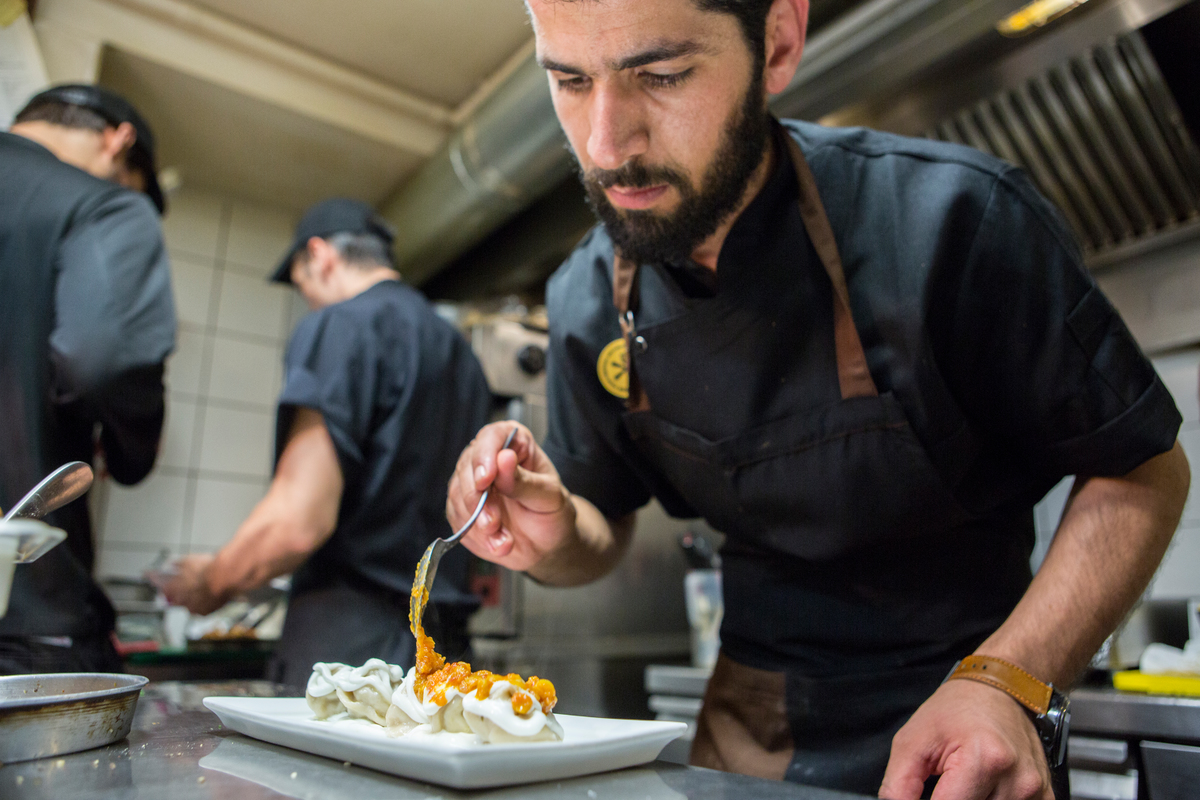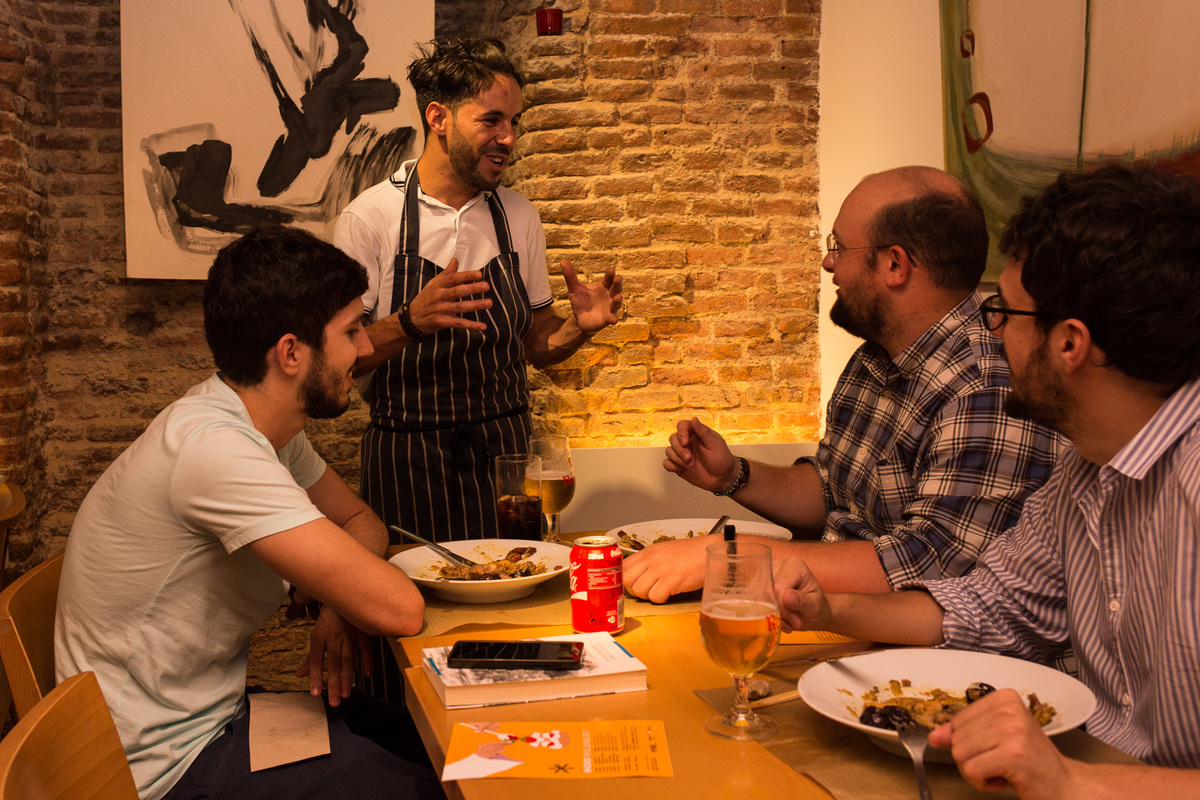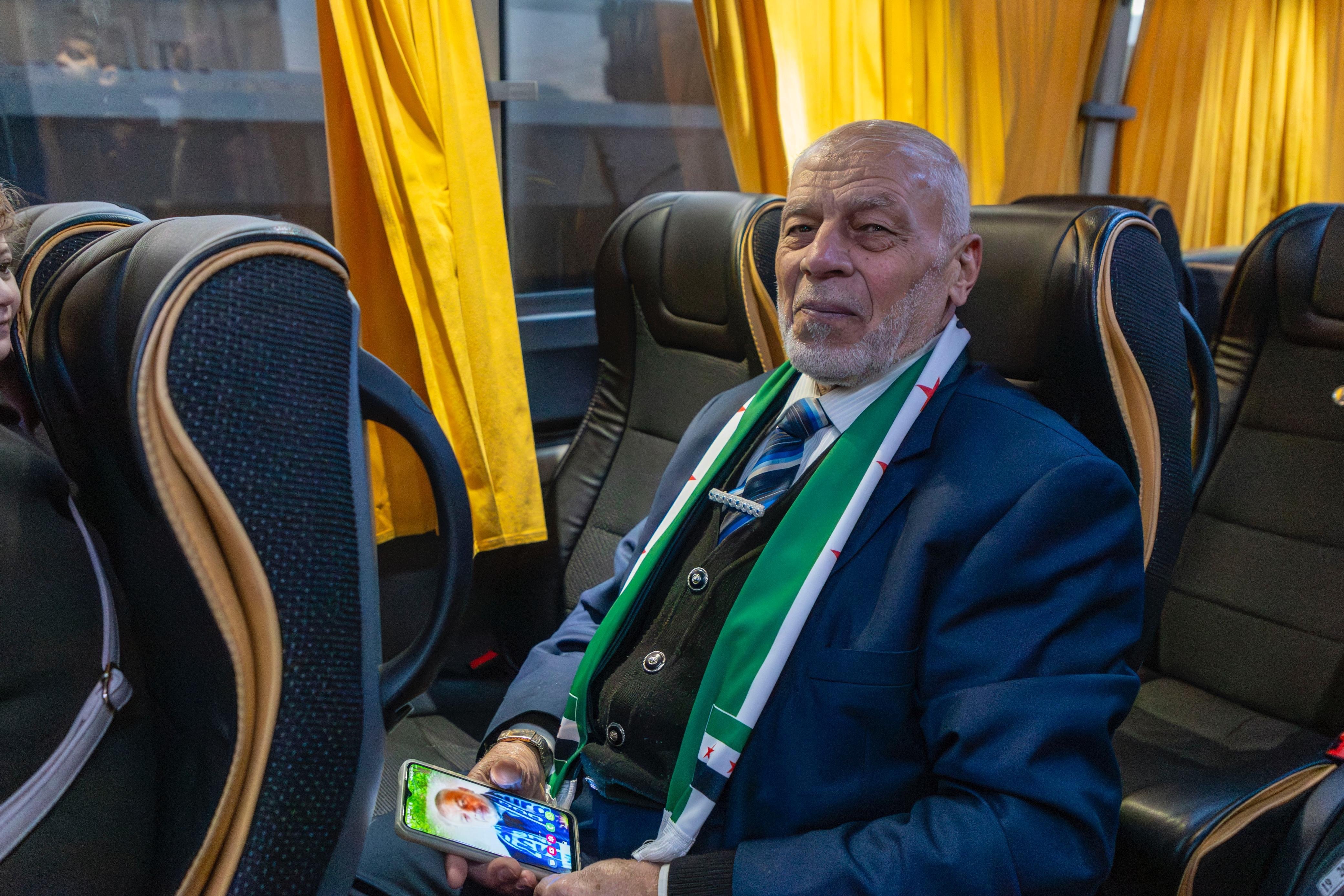Refugee Food Festival has European diners asking for more

Refugee Food Festival has European diners asking for more
With a menu of flavoursome African dishes, the 2017 Refugee Food Festival served up its last orders in Florence last Friday, after welcoming thousands of diners to 84 restaurants in 13 European cities over 15 days.
Restaurants in Greece, France, Spain, Italy, Belgium and the Netherlands opened their kitchens to 80 refugee chefs of 25 different nationalities, allowing them to showcase their skills and share their culinary culture.
Syrian cook Mohammad Elkhaldi donned his chef’s whites to launch this year’s festival on June 15 in the restaurant Le Substrat, owned by award-winning French chef Hubert Vergoin in France’s gastronomic capital, Lyon.
The final dishes were served on June 30 at the Ethnos restaurant in the Florentine neighbourhood of Borgo San Lorenzo, where Ethiopian cook Unatu Tagi and Michelin-starred chef Marco Stabile took over the kitchen.
In total, more than10,000 diners enjoyed food from countries such as Syria, Afghanistan, Iraq, Somalia and Cameroon, in surroundings ranging from smart dining rooms to bistros and take-aways. Customers were offered treats from cocktails and ice creams to five-course gastronomic dinners.
The French-born initiative started last year as a partnership between the NGO Food Sweet Food and UNHCR, the UN Refugee Agency, with the support of partners, citizens, local authorities, restaurants and private businesses.
“A high point for me was seeing the smiles on the chefs' faces as they answered questions from customers.”
After last year’s successful events in Paris and Strasbourg, for its second year the festival was extended to other European cities, and talks have already begun on proposals to hold Refugee Food Festivals next year in cities in the United States, Canada, Brazil and Australia.
One of the organizers, Louis Martin, co-founder of Food Sweet Food with Marine Mandrila, said this year’s festival may be over, but the project was still in its early stages. “There is so much more to do, starting with following up the professional integration of the chefs,” he said.
Here are some of the highlights of the 2017 Refugee Food Festival:
In Athens, five participating restaurants were fully booked days in advance, by an estimated 1,500 customers. After two full nights, the owner of one of the restaurants, Vassinelas, decided to extend for a third evening to allow more diners to enjoy the five-course menu cooked by Hassan Hassan from Somalia.
“Refugees are people with skills and talents and it is vital that they are offered the right opportunities to fulfil their potential,” said owner Thanassis Vassilenas.
Philippe Leclerc, UNHCR Representative in Greece, said: “The refugee food festival was a true eye-opener for refugees as well as for the Athenian restaurant owners and chefs who hosted them.”
In Madrid, the nine restaurants participating in the festival were fully booked for the entire week..
“I found this initiative amazing. I believe that Spain needs this type of events to support refugees,” said Banafsheh Farhang, the owner of one of the participating restaurants, Banibanoo.
Natalia Diaz, co-organizer of the Madrid section of the festival, said: “A high point for me was seeing the smiles on the faces of the refugee chefs as they answered questions from restaurant customers who were genuinely interested in their cuisine.”
In Amsterdam, the highlight of the festival was at the De Balie restaurant which is also a movie theatre. Mohammed Haj Kasem, an architect taught to cook by his mother, served Syrian dishes. ‘I am not a trained chef, but I love to cook,” he said. “My mother taught me everything.”
The sous-chef of De Balie, Luis Duarte Borges, said: “It’s a pleasure to have Mohammed here with us. We share our kitchen, he’s doing his thing, and I’m sure everyone will love it.”
In Brussels, Syrian mixologist Elias Edlbi Bittar impressed guests with cocktails using Syrian spices at Chez Richard. At the fashionable restaurant Henri, guests including officials from the European Commission enjoyed Iraqi cuisine cooked by refugee chef Amer Mohsen.
"None of us decides where to get born, so it is fundamental to remember the values of welcome and integration.”
In Paris, at the closing event of the Parisian section of the festival at the Grand Marché de Stalingrad, on the Canal Saint-Martin, Susanna Kilani, a refugee from Syria, gave a Middle Eastern twist to iced treats from renowned Parisian ice-cream maker Pierre Geronimi by adding pistachio nuts and baklava.
In Bordeaux, the festival finished with a huge picnic marking Eid al-Fitr, the celebration at the end of the Muslim holy month of Ramadan, with falafel from Syria, sweets from the Maghreb, cakes from Afghanistan and French chocolate cake.
In Lille, customers were able to try cuisine from Suriname at the restaurant Le Cirque. The restaurant was fully booked days in advance.
In Marseille, Chef Khanjee Tarakhil served traditional Afghan dishes of rice, chicken, aubergines, carrots, grilled raisins, cumin and yoghourt at Les Grandes Tables de la Friche. The restaurant was fully booked by 1 pm on the first day and those who were disappointed were able to return the next day to sample yet more Afghan specialities.
In Italy, refugee chefs cooked and took part in culinary events over three days, including cooking shows in the upmarket Eataly food shops in Rome, Milan and Bari.
In Milan, Michelin starred chef Viviana Varese and an Ethiopian chef explored Ethiopian cuisine together.
"None of us decides where to get born, so it is fundamental to remember the values of welcome and integration, which are strategic values to build the future of our society,” said Oscar Farinetti, the founder of the Eataly chain.
With additional reporting by Céline Schmitt in Paris, Edelmira Campos in Madrid, Evanthia Savvapoulou in Athens, Roxanne Koenis in Amsterdam and Vanessa Saenen in Brussels.

